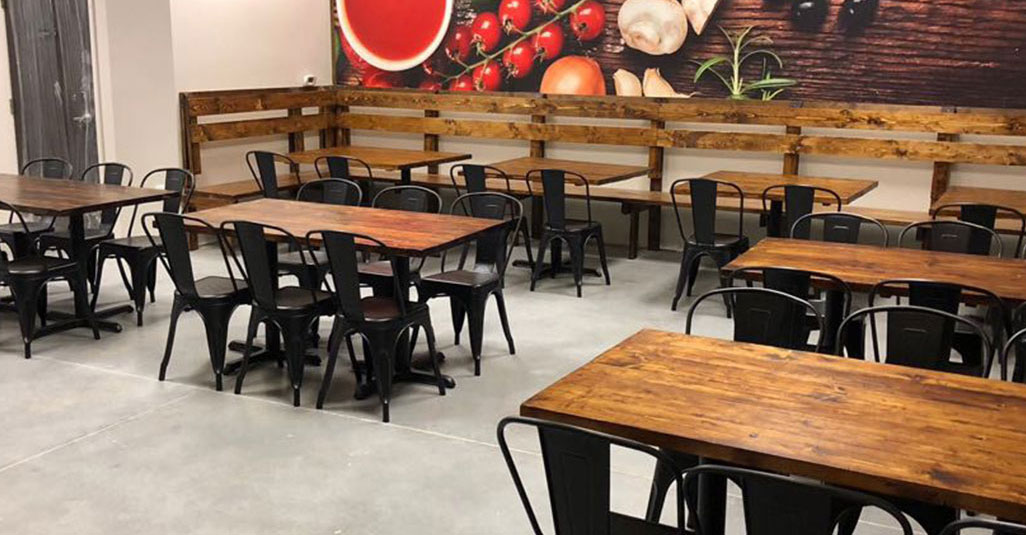
Remodeling Your F&B Establishment? Here’s What You Should Know About Flooring
Few floors see the kind of traffic that commercial kitchens do. Commercial kitchen flooring has to stand up under some pretty harsh conditions while remaining water- and stain-resistant, comfortable and easy on its users. It must be sanitary and easy to clean, and if it is visible to the public, it needs to be attractive, too. Just as important, commercial kitchen flooring needs to comply with local building and health codes. If you’re planning to remodel your F&B establishment, flooring is likely to be a big consideration and a big part of your budget, too. Here’s what you need to know.
Slips and Falls and Spills, Oh My!
Commercial kitchens can be hectic places, and spills are common occurrences. Water, oils and other fluids can pool and create slip hazards. Flooring needs to be more than just slip-resistant. It needs to offer serious traction without interfering with cleaning. Those liquids might be cool or room temperature, but they’re also just as likely to be boiling, which can damage many types of flooring materials, leading to blistering, cracking or peeling. Humidity and pooled liquids can create condensation issues and moisture vapor transmission, which deteriorates the flooring if not properly mitigated.
Granular spills, such as sugar or flour, can be just as problematic for flooring. They are abrasive, wearing down protective coatings, while dropped utensils can leave impact dents or scratches. That means you need a skid-proof floor with a durable, strong, high-performance coating that can withstand abrasion, heat, and chemicals.
Perhaps most importantly, the floor needs to support a hygienic, fully USDA-compliant environment to ensure the safety of guests and employees.
Commercial Kitchen Flooring Options
While many types of industrial flooring solutions can work in commercial kitchens, only a few can meet all the requirements of a commercial food facility.
Poured concrete flooring is a top choice in kitchens and foodservice environments. One of the most durable flooring choices, it can be finished with a variety of textures, inlays, decorative colors and elements. It’s seamless and naturally heat- and impact-resistant, and it is versatile enough to fit with a wide range of decors and environments. However, concrete is porous, so it needs to be sealed periodically to retain its stain-resistant properties.
Epoxy flooring is another popular commercial foodservice flooring choice. Epoxy flooring is made using epoxy resins and additives for slip-resistance and appearance. The epoxy is a liquid when it is applied, and it dries to a seamless, sanitary surface. It’s commonly used to refinish old, worn flooring and can be extended up the walls several inches to make the flooring easier to clean. The surface is completely sealed against contamination and seamless, making it easier to clean. Additives and colorants can be used to create a floor that is attractive as it is functional.
About Blackrock Industrial
Blackrock Industrial specializes in polished concrete floors, concrete resurfacing, premium epoxy flooring and commercial flooring systems. As Miami’s leading epoxy and concrete flooring contractor and installer, our goal is to provide our clients with an unparalleled flooring experience from start to finish.


